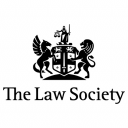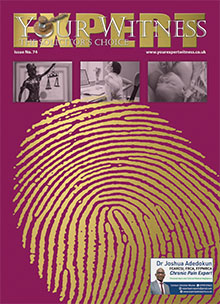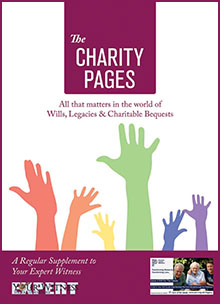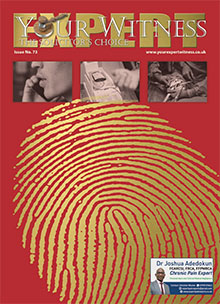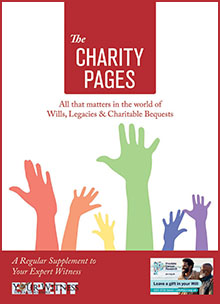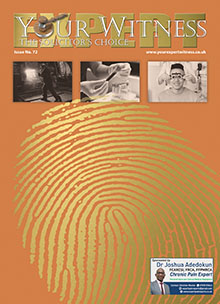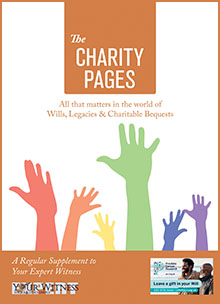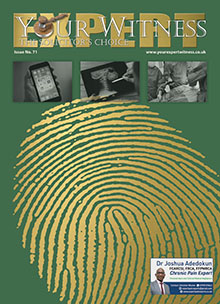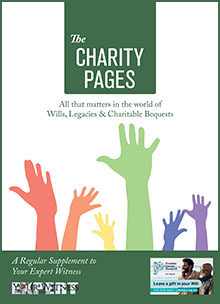THE PUBLIC has probably complained about clinicians’ behaviour since the beginning of medicine, but malpractice litigation is an extreme and ineffective form of feedback as even successful suits do not require any change in the defendants’ behaviour.
Furthermore, the culture of clinical practice is defensive of the practitioner rather than the patient due to an outdated sense of privilege, particularly among physicians, which results in a form of professional narcissism and closing of ranks that can make things even more difficult for the plaintiff.
Given an increasingly privatised, business environment in medicine, where risk-management is primarily about reducing financial risk to the institution, there is little space for an acknowledgement and sincere, well-explained apology to an injured patient – both seen to be highly effective even in the litigious atmosphere of American medicine. As Charles J Lewis noted: “...it cannot be emphasised enough how important it is to a patient to get an explanation of what went wrong. This is often his or her chief, and sometimes only, objective.” (Lewis, 2006 p. 71)
I would add that an informed apology is often the best prophylactic against litigation, as most complaints stem from an often-justified sense of having been mistreated in the personal sense rather than negligently treated in the medicolegal sense.
These sorts of problems lie at the root of much, possibly most, malpractice and reflect both the personal weaknesses of a clinician and of the practice-culture in which he works. Since the Bristol Inquiry, which investigated the case where 35 children died needlessly due to clinician and administrator misconduct, there has been a sudden, belated recognition in the UK of the seriousness of behavioural problems among both clinicians and administrators, of the culture that protects these weaknesses and of the failures of the clinicianbodies charged with oversight. In this instance the foxes were indeed unable to guard the henhouse and became typically highhanded when the carnage was complained of. Those affected fought back and in a way unprecedented in British medical history.
Difficult doctors
Acts of malpractice rarely occur in a vacuum or in isolation, for they are carried out by a person subject to problems and illness just as much as the person they treat. Many malpractice cases focus primarily on negligence in the isolated application of a technical skill, while more contextual factors (such as the person and the organisation) are rarely examined; these latter factors are often the real determinants of malpractice events, for the simple reason that people tend to be consistent in the nature of their risk-taking and mistakes – and all the more so within professions resistant to change.
Clinicians get stuck in a way of doing things regardless of its consequences and changing clinicians’ practice behaviour is harder even than changing sexual behaviour in those at risk of contracting HIV. How much hope does one have of changing more complex practice behaviour when hospitals have to threaten to sack clinicians if they won't wash their hands to protect against MRSA? The problem lies in personal and contextual factors, which are the bread and butter of behavioural forensics and can make a fundamental difference in determining accountability.
Factors in behavioural forensics include mental and physical illness status, personality, selfmanagement and stresscompensation style, interpersonal manner, work and personal relations (and history of conflicts), job nature, work and administrative environment, schedule and impression management (eg deceptiveness). Simply put, a clinician with a personality problem, poor selfmanagement and stresscompensation style resulting in unnecessary workload and ‘bad attitude’ will be at far higher risk of conflict both with his patients and with those who seek to oversee the standards of his practice. Unnecessary risks develop into a behavioural pattern; he will seek to hide any problems and subsequently resist accountability. Worse, clinicians often rely on their own judgement of performance and of their health.
Sick doctors
The most obvious performance-related problems lie in sickness; clinicians are subject to the same illnesses as the general public and most sickness in clinicians is due to mental and behavioural disorders. In terms of risk to patients, mental illnesses vary from the ‘colds and flus’ of denial, poor insight, excessive self-regard, overvalued competence, rigidity, and bullying of patients and colleagues – again, many aspects of a syndrome of professional narcissism, significantly associated with professional misconduct (Penney and Specter, 2002). Even ‘low selfcriticism’ has been related to the risk of potentially litigious complaints (Firth-Cozens and Morrison, 1989).
More ‘overt’ illnesses include addictions, developmental and other socio-cognitive disorders (dyslexia, Asperger’s syndrome, age-related cognitive loss), sexual abusiveness, personality disorders, depression, anxiety disorders and psychoses. The severity of a problem for the clinician is not indicative at all of its seriousness to public welfare – an addicted clinician can cause less harm to a patient than one who has an overvalued sense of competence or poor insight (cf the GMC finding against Professor Sir Roy Meadows).
Most physical performance problems relate to fatiguability, mobility, alertness, reliability, auditory and visual acuity, etc and sometimes physical, particularly chronic, conditions underlie mental illness. Many such problems are hidden and complex and require expert assessment.
Behavioural forensics
Behavioural forensics involves the careful analysis of mental and physical behaviour in context, particularly the clinician’s health status and work environment. Depending on the brief and the complexity of the case, various forms of information may be gathered and may include interview, psychometric and documentary analysis (overt and covert), direct and indirect (collateral) information of colleagues etc.
The interview skills include those commonly used in the in-depth assessment of ‘difficult patients’ (cf Othmer and Othmer, 2002; p.323 ff).
Mental and behavioural profiling of the clinician may be carried out and particularly an assessment of insight and self-management skills, including styles of thinking and processing information and attitudes, as well as deceptive and cover-up behaviours; similar skills are used in behavioural medicine to assess and treat/rehabilitate patients with complex illness.
Behavioural forensics is used frequently in police and military investigations in the USA and is coming more into use in civil cases. Such analyses can uncover – or rule out – patterns of riskbehaviour that predispose a clinician to malpractice and assess the likelihood of a given malpractice event being due to accident, negligence or malfeasance and/or part of a pattern of practice that increased the risk to the patient. When applied to the plaintiff it can also determine falsification and exaggeration of charges.
The findings may assist in the development of legal strategy, the further interviewing or crossquestioning of a party, the motivation to negotiate, the actual negotiation during round-table discussions between lawyers and between experts, the early settlement or winning of a case (especially in highlycontested cases), the estimation of quantum and the winning of damages in cases of abuse of authority (cf H v Ministry of Defence, 1991).
The fact that such skills are used in assessing clinicians in litigation is no small irony but, again, there is little reason to complain when the same techniques are used against police officers accused of misconduct. When you need to determine if a defendant has or is a problem causative to a malpractice or negligence event, behavioural forensics is appropriate. In most, but especially complex or politically sensitive cases, as in the recent government inquiries, the current climate of heightened public protection would tend to demand it.



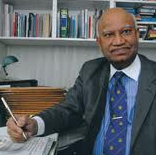 “Speculate before you accumulate. I am a long term regular writer and advertiser in 'Your Expert Witness - the Solicitor’s Choice'. This investment pays me substantive dividends; I get more Expert Witness work with every issue. Not only solicitors and barristers but also judges seem to read it. It is a win-win situation. Success breeds success; I must continue to write and advertise.”
“Speculate before you accumulate. I am a long term regular writer and advertiser in 'Your Expert Witness - the Solicitor’s Choice'. This investment pays me substantive dividends; I get more Expert Witness work with every issue. Not only solicitors and barristers but also judges seem to read it. It is a win-win situation. Success breeds success; I must continue to write and advertise.”









